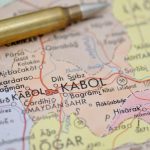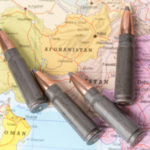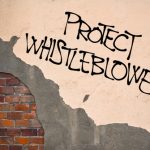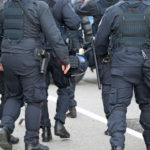True Blue Murder: SAS Soldier Executes Unarmed Man
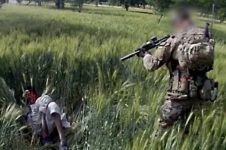
As the Inspector-General of the Australian Defence Force (ADF) prepares to deliver a final report following an inquiry into special forces deployed in Afghanistan, shocking video footage has emerged of an Australian soldier executing an unarmed Afghan civilian.
The video footage, aired by ABC’s 4Corners programme ‘Killing Field: Explosive new allegations of Australian special forces war crimes’ (below), clearly shows an Australian SAS (Special Air Service) soldier shooting and killing an unarmed man, Dad Mohammad, as he cowers in a wheat field holding on to what looks like prayer beads.
The Australian patrol scout fires three shots into his head and chest from between one and two metres away. The footage tells a different story to the description of the incident given ADF investigators by the soldiers involved.
The soldier who shot Dad Mohammed, and who still serves in the special forces said he shot the man because he had seen him with a radio. Killing is permitted if it’s possible that someone could be reporting on the Australian soldiers. He also claimed he fired shots from 15 to 20 metres away – but this directly contradicts his proximity with the victim as shown in the video.
The ADF later ruled the killing was ‘justified as self-defence’ because Mr Mohammed posed a ‘direct threat’ to the Australians.
‘Very serious wrongdoing’
The footage, recorded by a helmet camera, worn by another soldier, the dog handler, could result in war crime charges, such as the international war crime of wilful killing under section 268.24 of the Criminal Code Act 1995 (Cth) which carries a maximum penalty of life imprisonment.
It has surfaced just as the Inspector-General of the Australian Defence Force investigates 55 separate incidents involving our special forces in Afghanistan.
The inquiry was launched in 2016 on the back of ‘rumours’ of “very serious wrongdoing” over a period of more than a decade by members of Australian special forces in Afghanistan. These included the unlawful killings of “persons who were non-combatants or were no longer combatants”, as well as “cruel treatment” of such persons.
Led by NSW Supreme Court Justice Paul Brereton, who is a Major-General in the Army Reserve, the inquiry has called more than 300 witnesses so far and a report is due sometime in the coming months. Importantly, the inquiry is not focused on decisions made during the “heat of battle” and is also considering the wider implications of “cultural, psychological, operational and organisational factors” surrounding the alleged incidents. It will attempt to ascertain the veracity of the allegations with a view to making recommendations regarding the prosecution of alleged offenders.
Elite Australian military forces were deployed alongside US and allied forces in Afghanistan following the September 11, 2001 attacks. NATO and its allies pulled combat forces from the country in 2014.
Allegations that war crimes have been committed
A former soldier Braden Chapman, a signals intelligence officer, who served in the squadron at the time of the killing of Dad Mohammed was not a was not a witness to the killing but when showed the footage said it looked like: ”straight-up execution.”
He also told 4Corners that soldiers often joked about the ‘size of the rug’ they’ve swept everything under.
While acknowledging that he feared retribution for speaking out, Mr Chapman said he wanted those who had committed crimes to be held accountable.
The footage substantiates whistleblower reports published in the Afghan Files that Australian soldiers have committed numerous war crimes against civilians in Afghanistan.
How are war crime charges prosecuted?
The Criminal Code Act 1995 (Cth) contains several international war crime charges, including wilful killing, torture, inhumane treatment and causing great suffering. These offences can be prosecuted through the regular court system.
However, they can also be tried by the military justice system. Given the public interest in the allegations of war crimes conducted by Australian special forces in Afghanistan the ordinary (civillian) courts would offer a more transparent process than behind the closed doors of the Australian Defence Force. However, if the ADF claims there are sufficient ‘national security’ reasons, any charges that are laid may well be handled by the military, out of the view of the public.
While we often hear about the role of the International Criminal Court’s role in prosecuting war crimes, it tends to only become involved if a national government is unwilling or unable to carry out an investigation or prosecution of its own.
Maximum penalties for war crimes
It’s worth noting that International humanitarian law informs the definition of offences in the Commonwealth Criminal Code, so any prosecution of war crimes in Australia would most likely rely on the legal principles of international war crimes tribunals. The penalties can be severe.
Offences under the Act, include wilful killing (which attracts a maximum penalty of life imprisonment), attacking civilians (life imprisonment), attacking undefended places (life imprisonment), inhumane treatment (25 years imprisonment), wilfully causing great suffering (25 years), torture (25 years), unlawful confinement (17 years) and destruction and appropriation of property (15 years).
About 300 Australian Defence Force members and Defence civilians are still deployed in “Task Group Afghanistan” as part of “Operation Highroad” – the Australian contribution to the NATO-led Resolute Support Mission in Afghanistan. It’s been reported that about one-third of these ADF members are about to be brought back home.



